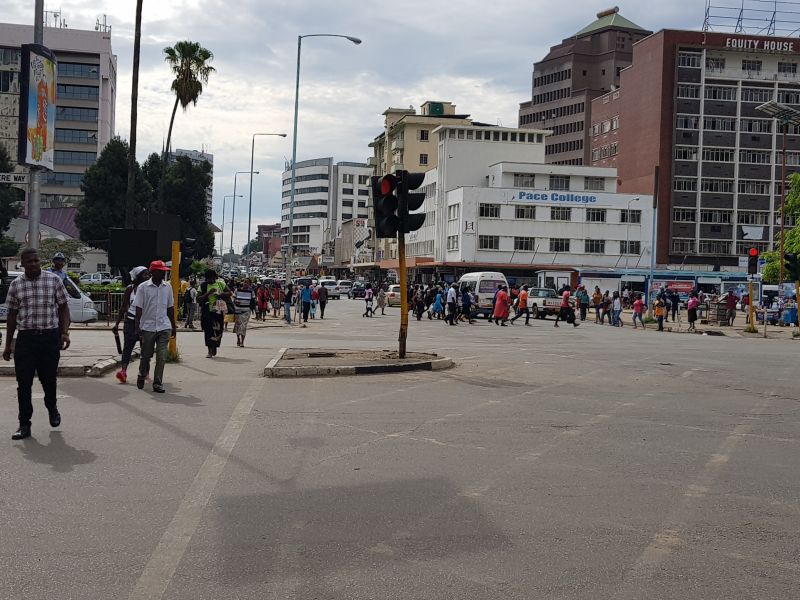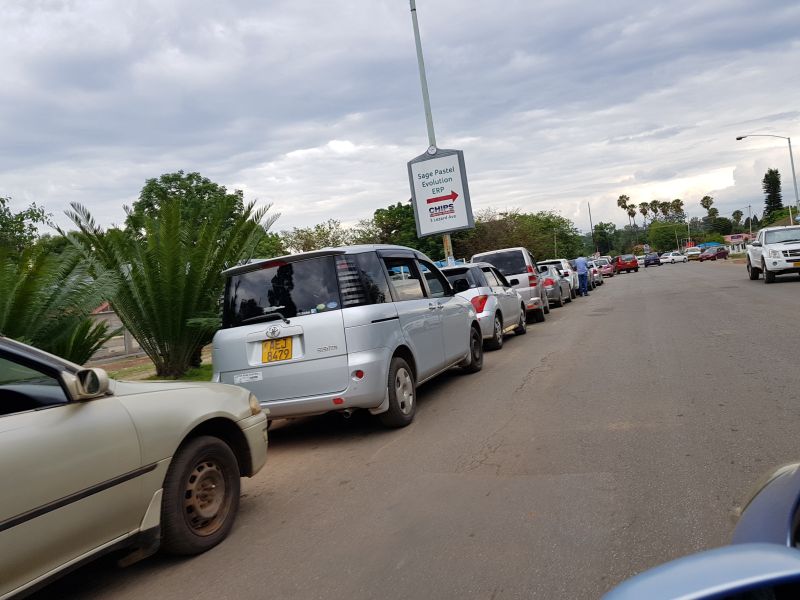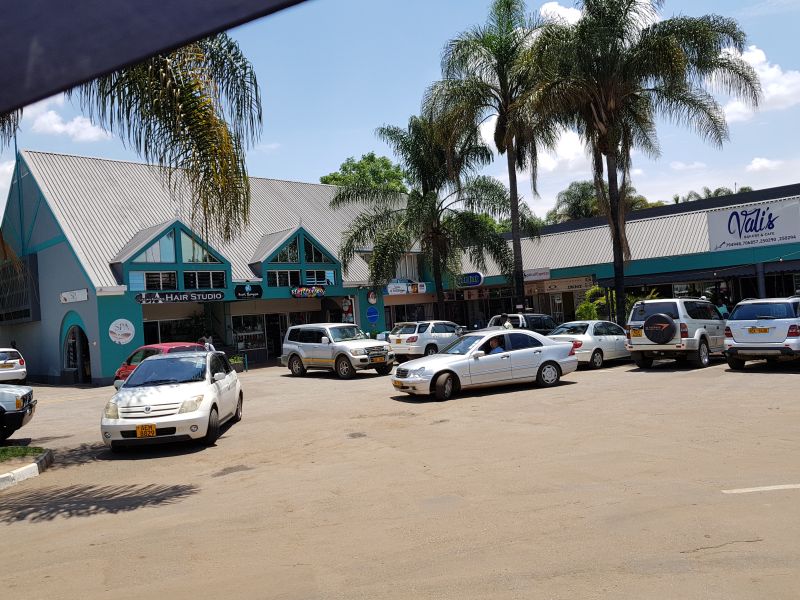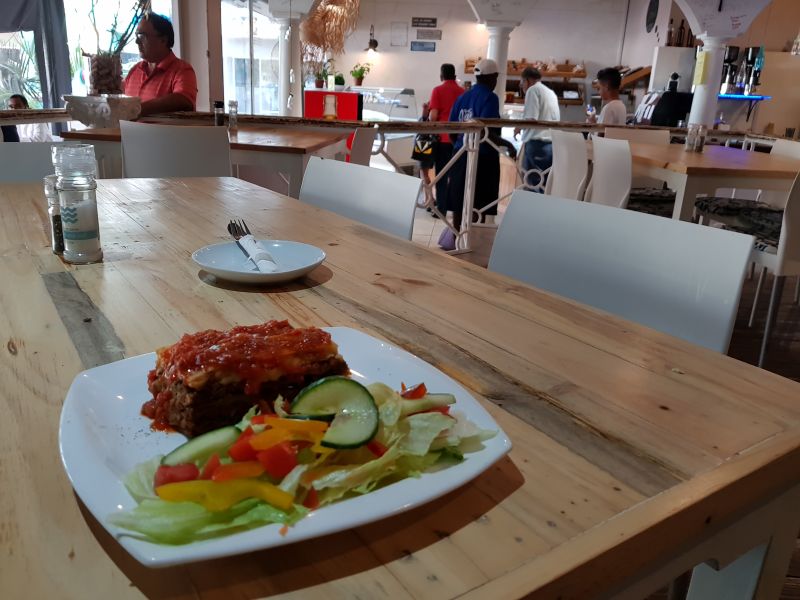
Harare city center 哈拉雷市中心
4-5/12/2018. After two nights, I left Lusaka for Harare, the capital of Zimbabwe, the fifth country on this trip. The bus barely warmed up before the passengers burst into an energetic chorus. The passport control at the Chirundu crossing was the most efficient I have seen, both countries sharing the same building, the same floor.
I arrived in Harare after dark, with no local currency, no local sim card, and no accommodation, mostly because my brain was still trying to catch up while I powered ahead. As I paced around, a fellow passenger asked if she could help. After a phone call, I was taken into a small van and there exchanged some local currency. I always thought I would manage somehow after I arrived at a destination, despite prior experiences. Fortunately, I did, though perhaps a bit foolhardy.
Zimbabwe is a strange one, reminding me in some ways of Venezuela. This country used to be called Rhodesia and known to be the food basket of Africa when it was run by the minority whites. It quickly descended into a basket case when it became black majority rule. As my bus drove into Zimbabwe, I saw many large-scale farmlands, unlike many of the African countries I had been through. It was and should be a land of plenty. However, instead, I very quickly noticed long queues of vehicles at the pumps, fueled by a shortage of foreign currency. It seems a travesty. How could doing the right thing be so wrong?
Yes, this is a country ironically known for hyper-inflation and absurd currency devaluation in recent years. There is a huge difference between the official and black market exchange rates. Fortunately, I carried with me the almighty USD, backed not only by the FED but also God, for on it is inscribed “In God We Trust.”
Harare looks like a colonial city, with numerous old colonial buildings. Tie-wearing is common, children go to school in smart English uniforms, and English is widely spoken. It couldn’t be more English than England.
I read that 85% of the Zimbabweans claim to be Christians and a large number of these regularly attend church service. I have seen them pray in a group on the bus, I have seen tin-roof churches, and have benefited from their helping hands. They appear to be God-fearing people. Why, then, is this land looking so godforsaken? Sad.
4-5/12/2018 在路萨卡两晚后启程往哈拉雷,津巴布韦首都, 此行第五国。大巴还没暖身,车上津巴布韦人已大展歌喉合唱。两国边检是我见过最高效的 – 两国出入境在同一屋檐下,同一楼层,两国一站式服务。
到津巴布韦时已是夜晚,没津币, 没芯卡,没住宿;因为跑的太快, 把脑留在体后了。正犹豫时,一位同车女士问我需要帮忙吗。她打了个电话后,我上了辆小面包车,在里面顺利换取了津币。有勇无谋,鲁莽我都承认了。但有时一些冒险的刺激在非洲也是个难忘回忆。不马上决定,到时再说,还说不准会有意外惊喜。
津巴布韦这国已久仰大名,以前少数的白人管理时,是盛产粮食;后来多数民族执政,经济急速下滑。我在多处注意到加油站前的长龙,听说一排就几小时。通货膨胀率和货币贬值近几年都是天文数字,怎会这样?使我想起委内瑞拉。很不幸。幸好我手持美金,在这里很吃香。黒市汇率比官方的好很多,跟黄牛兑换划算不少。
哈拉雷殖民风貌浓, 到处可见英国时期遗留建筑, 学生还穿着英式校服, 随街可见打领带的,英语更是非常普遍。这里人们虔诚信教,温文有礼, 乐于助人, 可是这国家怎么弄得不伦不类,沦落到今天这境地?

Passengers lay baggage on the floor for custom inspection 乘客把行李都摆在地上让边境安检人员检查 
Harare city center 哈拉雷市中心 
Harare city center 哈拉雷市中心 
Harare city center 哈拉雷市中心 
Harare city center 哈拉雷市中心 
Harare city center 哈拉雷市中心 
Long queue at the petrol kiosk在加油站的长龙 
English suburb in Harare 哈拉雷的英式住宅区 
Cafe in an English suburb in Harare 哈拉雷的英式住宅区咖啡馆 
Lunch in an English suburb café in Harare 哈拉雷的英式住宅区咖啡馆午餐
888slot Sảnh game xổ số, lô đề tại đây nổi tiếng với độ uy tín và trả thưởng sòng phẳng, xanh chín. Do vậy mọi người hoàn toàn có thể yên tâm tin tưởng tham gia cá cược thỏa mãn niềm đam mê của mình. Đồng thời tất cả các game đều được chúng tôi sử dụng thuật toán RNG ngẫu nhiên đảm bảo tính công bằng 100%. TONY01-05